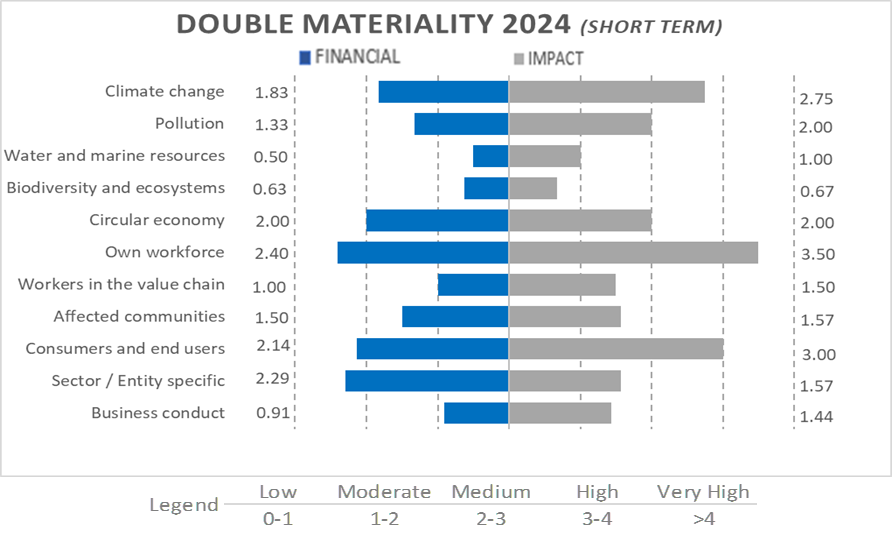

The identification of the most relevant topics, reflecting both stakeholder interests and expectations regarding DDOR and its strategic priorities, is the outcome of a materiality analysis process. In DDOR and its parent company Unipol’s vision, this process is deeply interconnected with and shaped by strategic planning.
Firsts steps in establishing ESG framework in the Company was conducted by the Sustainability department in cooperation with all responsible function by doing ‘double materiality assessment’.

The process description:
The primary methodological reference used (reporting standard) is the ESRS standard, which defines the process through which DDOR defines its “material topics”, meaning the areas in which DDOR generates the main actual and potential impacts on the economy, the environment and people.
Double materiality assessment (DMA) started with identification of sustainability issues that are applicable to DDOR Novi Sad and which could correlate to achievement of SDG goals (within the current three-year plan), to which DDOR Novi Sad sees the possibility of its contribution. The process could be shortly described as intensive engagement and mutual collaboration.

Each sustainability topic is evaluated through DMA tool and analyzed through four dimensions:
- Financial materiality – risk or opportunity (“outside – in”) and
- Impact materiality – positive or negative (“inside – out”).

Materiality Matrix
The results of the DMA analysis below, are represented graphically through a list of topics, according to their overall relevance. Evaluation of results was calculated trough defined DMA model by measured materiality of topic (i.e., importance) through weights from 1 – 5.